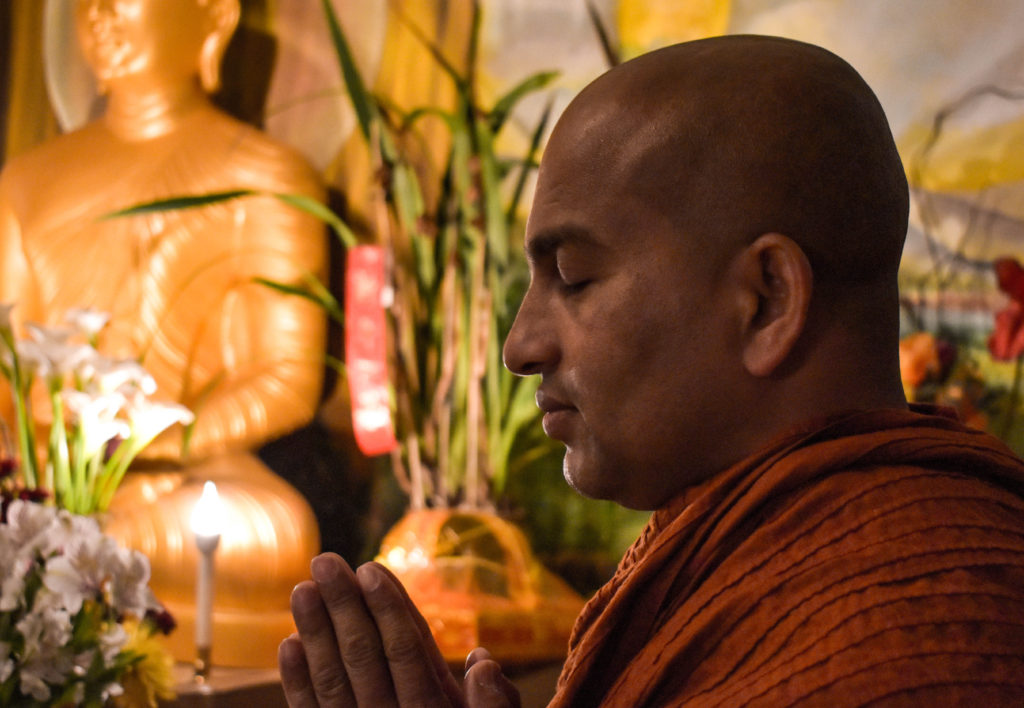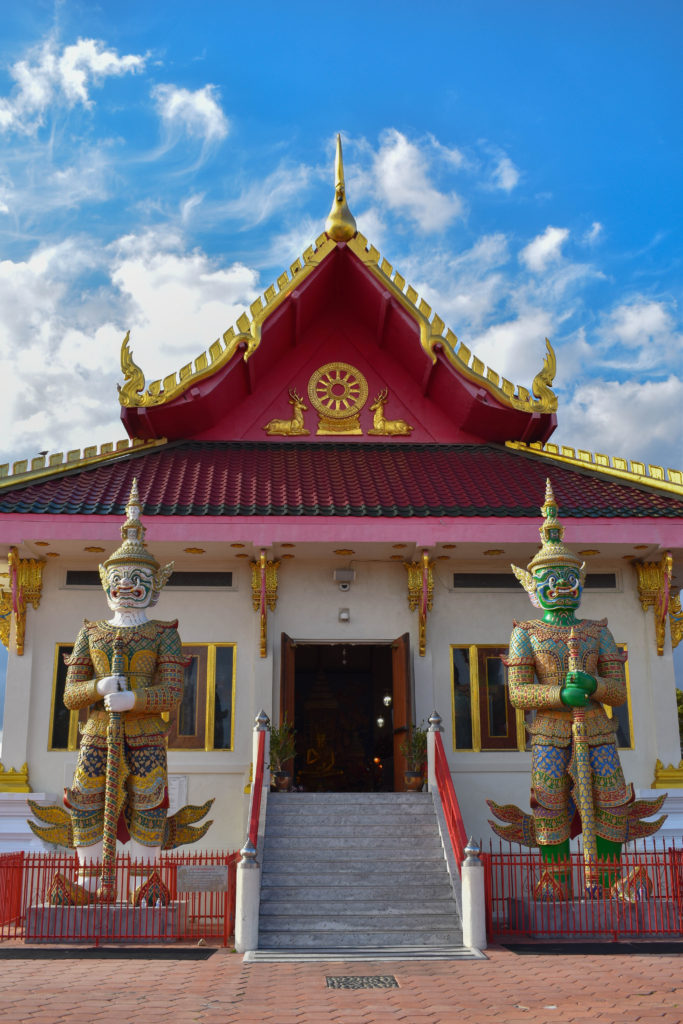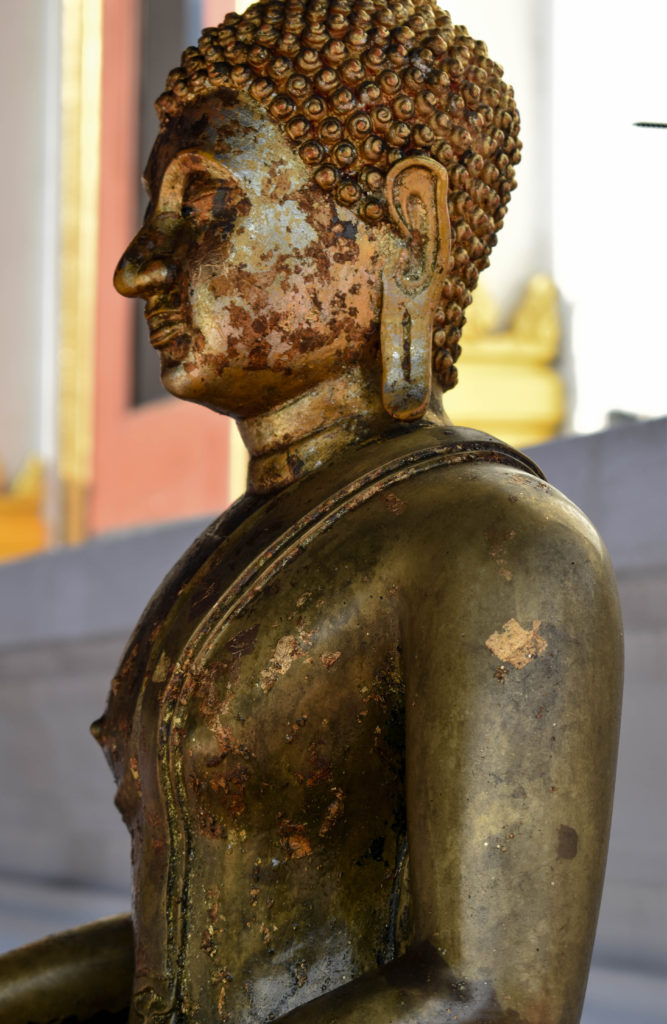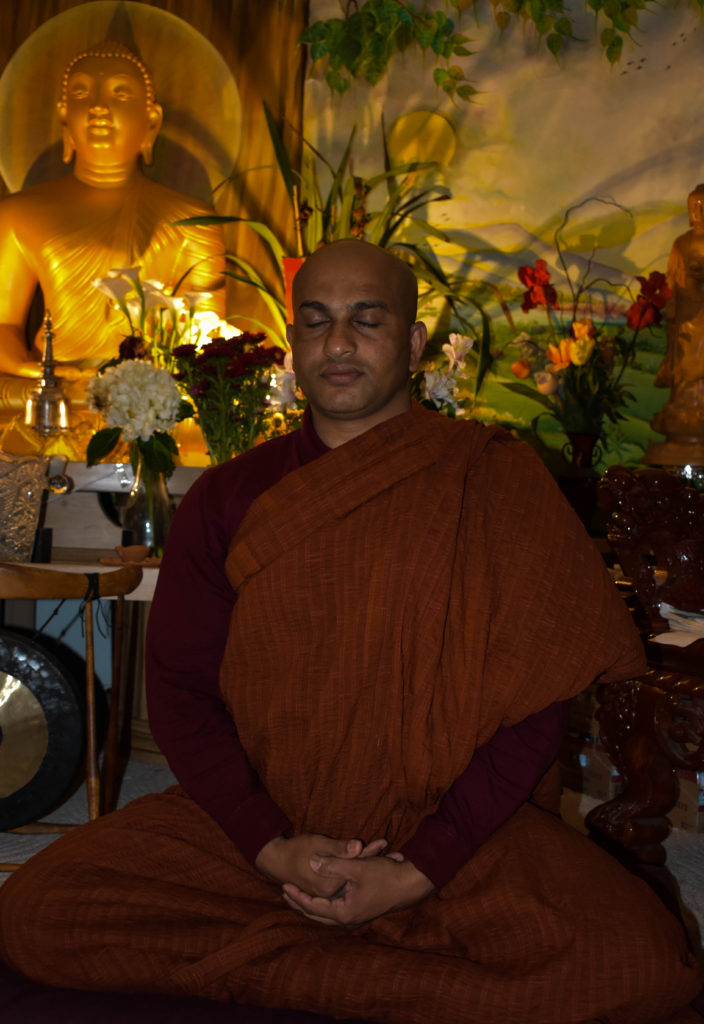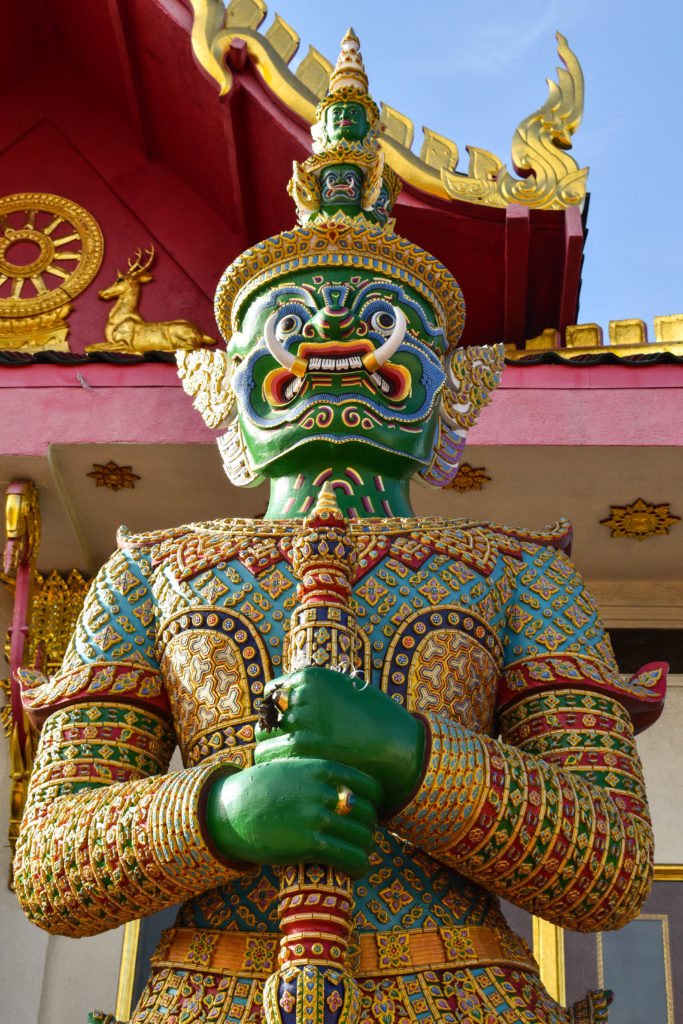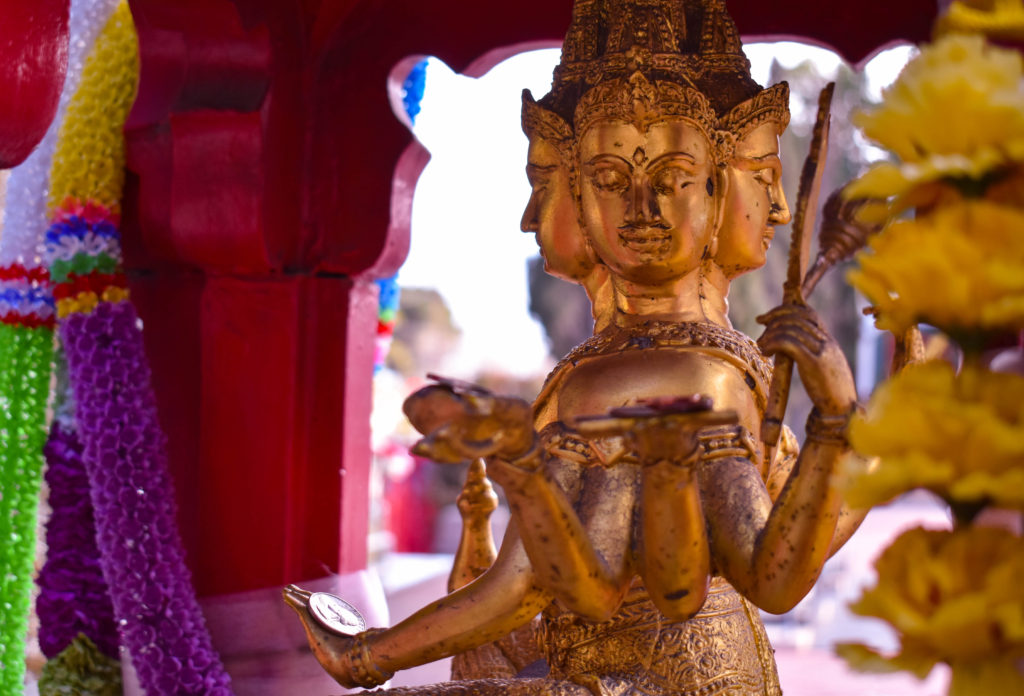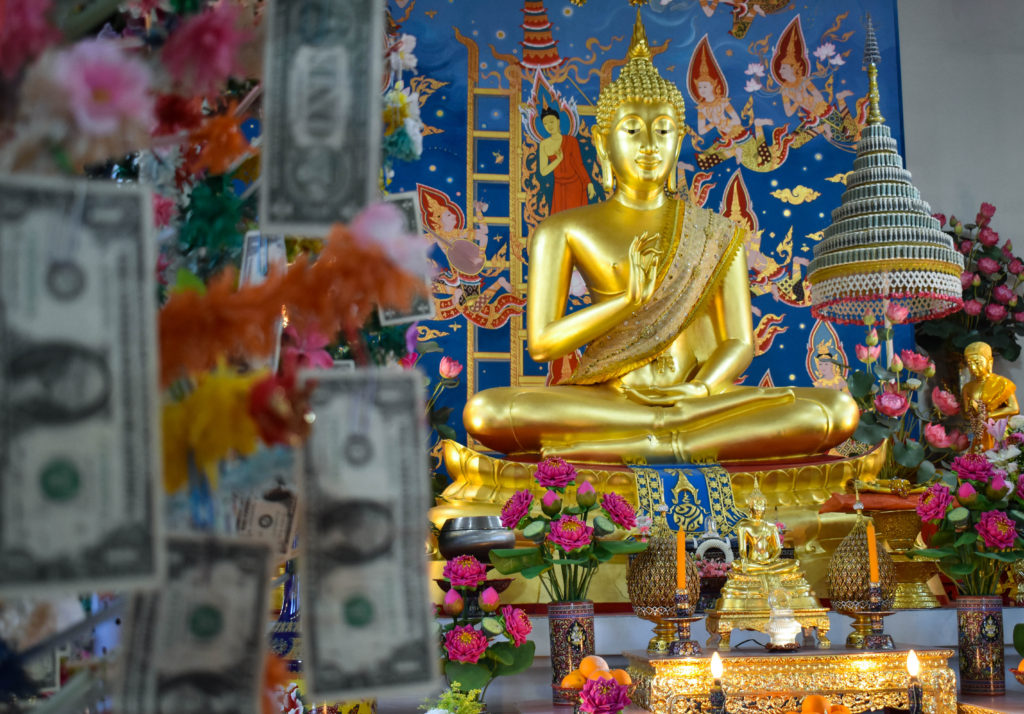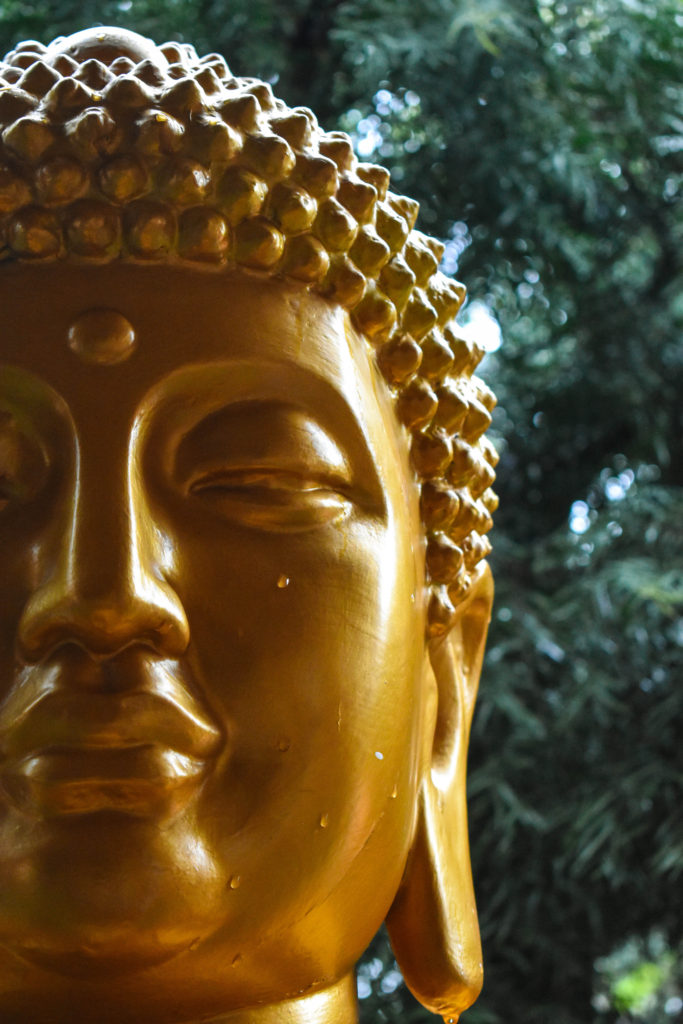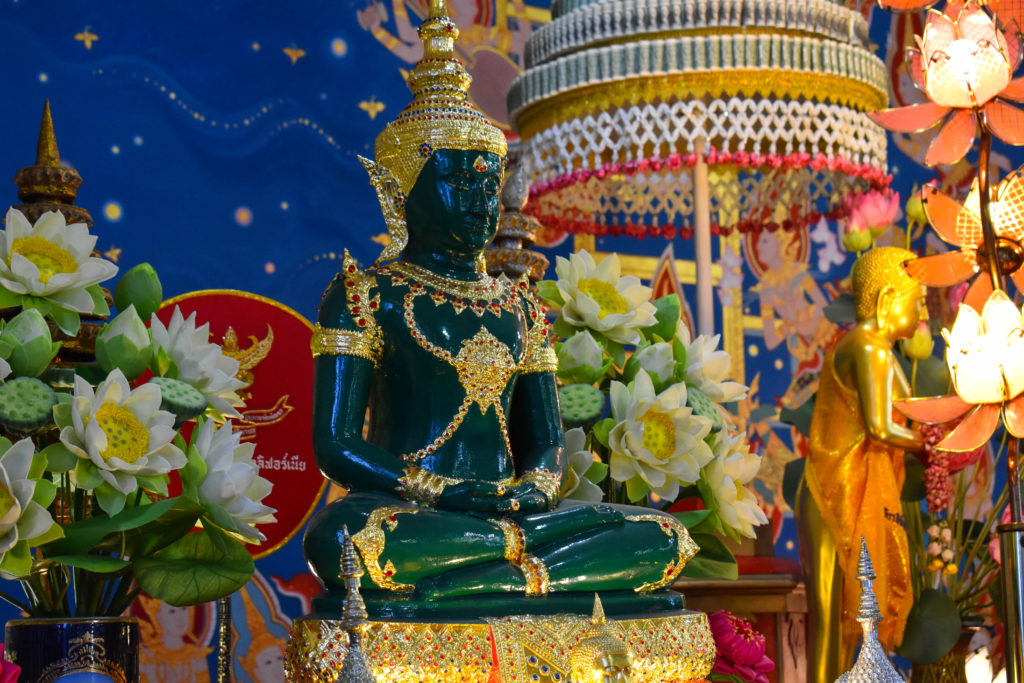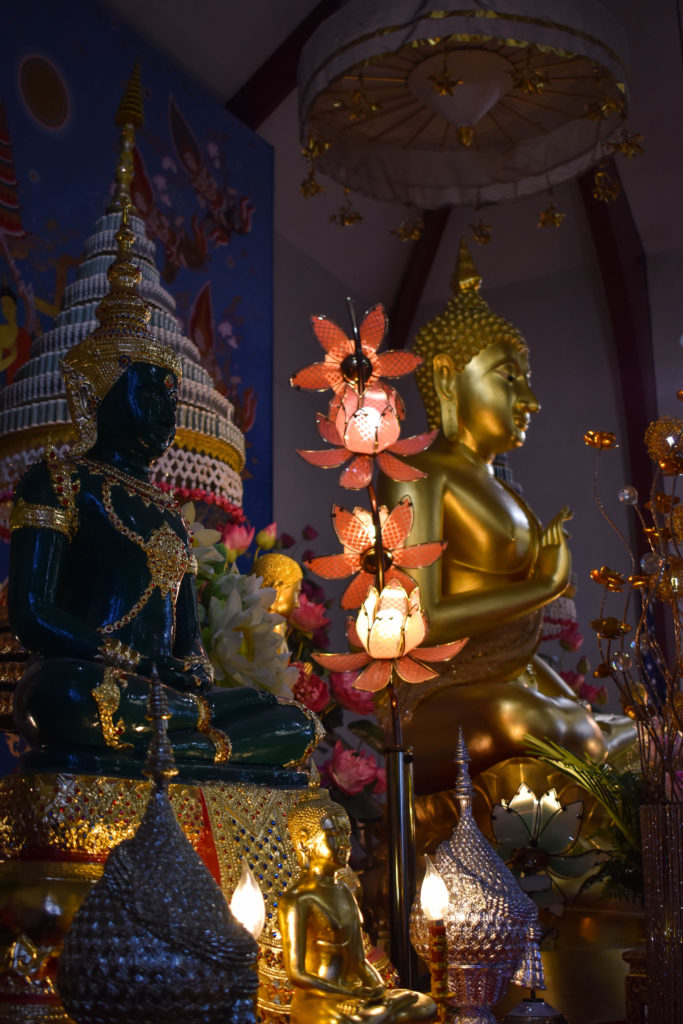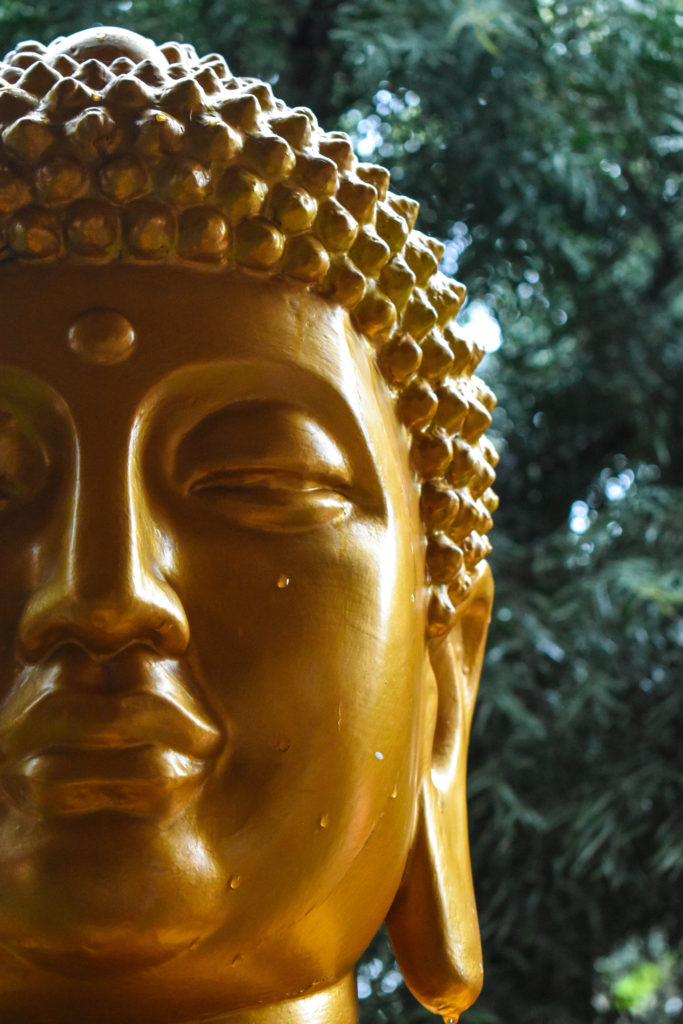Photos and Story by Maja Losinska
A warm upland air was flooding through the window at the West Hills Meditation Center, dancing to the sound of chirping birds and passing cars.
The smell of aromatic incense releasing rose-infused smoke spread over the room.
Bits of sunset light were still falling through the window as about a dozen people settled into comfortable spots on the carpet- many with crowded thoughts they hoped to let go.
Participants in the meditation sessions, held each Saturday and Sunday, receive help with their breathing, which may also improve vision, taste, touch, proprioception, hearing and smell.
In Buddhist philosophy, human beings have the ability to live with great determination. They have a gift of extraordinary human intelligence and the ability to develop mental energy to use it in a positive way. Awareness of having this potential is the source of fundamental strength, according to Buddhist teachings, which also stipulate that it can allow people to deal with difficulties without falling into a sense of hopelessness.
This is the reality that has been part of Sri Lanka native, Master Shantha Shobhana, who in 1987 decided to become a Buddhist Monk.
Despite his parents disapproval, Shobhana believed the calling was something bigger, like a boundaryless dimension of human experience, something with roots so deep he couldn’t question it.
“The Monk told my parents, ‘No, You can’t keep this child. Let him do what he wants. He’s going to go, so it’s better to let him go to Temple,” Shobhana said.
According to Shobhana, from that day he devoted himself to Buddhism and self-care through meditation, but also acupuncture and yoga. He understood that he is someone who can guide people and help them become better through the Buddhist philosophy.
“When someone comes with the pain, I know it’s in their mind. We don’t have any problems in life, but the way we think, when we are stuck mentally, this is our problem,” Shobhana said.
Shobhana said there is no magic in healing, and that all the answers are within people. Meditation processes facilitate the management of emotions and control or even prevent relapse after winning the fight against depression.
“The pain is the indicator, something that can teach you. You can transform that pain into wisdom If you learn to recognize and understand it,” Shobhana said.
Happiness is not defined as an emotion gained through positive aspects, Shobhana explained. He added that emotions are fragile and happiness is the internal energy built on the foundation of positive affirmations. It is people’s responsibility how they react to a problem, not the problem itself.
There are many fields of psychology that have their roots in this philosophical heritage. A psychologist with 22 years practice, Heidi Michelle Taylor, uses Buddhist psychology aspects in her practice.
“Training your mind is a component of becoming happy, although some people have biochemical imbalances and do need medications,” Taylor said.
She said people are constantly changing and mentally growing. Buddhist philosophy focuses on the present, while people usually still live the past trying to figure out what went right or wrong.
“I believe it’s helpful to look back but not to get stuck there,” Taylor said.
Pursuant to Buddhism philosophy the healthier your mind is, the easier it is for you to manifest what you want in life. People cannot create a pleasant environment if their mind is at a war.
In Westlake Village, the Tushita Kadampa Meditation Center holds daily sessions.
Attendee and teacher Dana Minas said she healed herself from toxic situations realizing the problem laid within her.
“I started with the different types of meditations and I completely purified those relationships and transformed others”, Minas said. “I’ve realized I was the one that created that toxicity and I am the one that can change my mind and purify it,” said Minas. ‘’We all have that Buddhist seed within us.”
Shobhana compares people to a drop of water in the middle of the jungle. That water doesn’t need any navigation to find the ocean, just like people who seek for answers. They will find it when they are conscious and ready.
Spiritual values have firm roots in the world and they aim in the biggest realization in the present existence. Shobhana said there is the key point to understand the pain.
“If you practice to develop your consciousness, that is where you recognize what is inside suffering. You already have all the answers, you have to observe and recognize,” Shobhana said.

